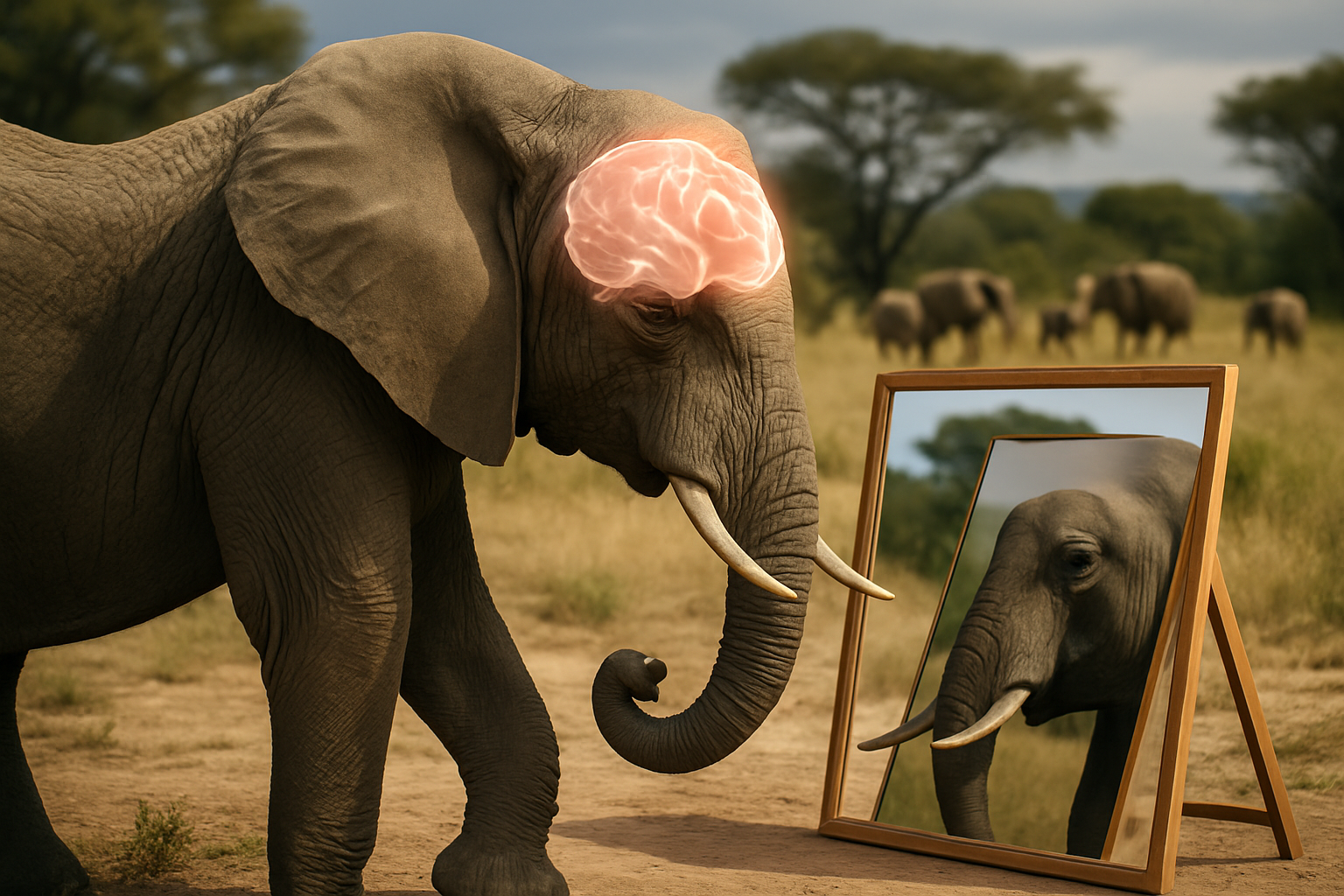Unraveling the Enigma of Elephant Cognition
Elephants, the gentle giants of the animal kingdom, have long captivated our imaginations with their intelligence and emotional depth. Recent scientific discoveries have shed new light on the cognitive abilities of these magnificent creatures, revealing a level of mental prowess that rivals some of the most intelligent species on Earth. This article delves into the fascinating world of elephant cognition, exploring their remarkable problem-solving skills, social intelligence, and self-awareness.

The Elephant Brain: A Marvel of Nature
At the heart of elephant cognition lies their remarkable brain. Weighing in at around 5 kg, the elephant brain is the largest of any land animal. But it’s not just size that matters; the structure and complexity of their neural networks play a crucial role in their cognitive abilities. The elephant neocortex, responsible for higher-order thinking, contains as many neurons as a human brain, despite being three times larger in overall size.
Researchers have identified specialized neurons in elephant brains similar to those found in humans, great apes, and certain dolphin species. These von Economo neurons are thought to be involved in social cognition, empathy, and self-awareness. The presence of these neurons in elephants suggests a level of emotional and social intelligence comparable to that of humans and other highly intelligent species.
Problem-Solving Prowess
Elephants have demonstrated remarkable problem-solving abilities in both wild and captive settings. In controlled experiments, they have shown the capacity to use tools, manipulate objects to reach food, and even cooperate to achieve common goals. One famous study conducted at a Thai elephant sanctuary revealed that elephants could coordinate their actions to simultaneously pull two ends of a rope to retrieve a food reward – a task that requires not only understanding the problem but also recognizing the need for cooperation.
In the wild, elephants have been observed using branches to swat flies, digging wells to access underground water sources, and even using their trunks as snorkels when crossing deep rivers. These behaviors showcase their ability to adapt to various challenges and innovate solutions, highlighting their cognitive flexibility.
Social Intelligence and Emotional Complexity
Perhaps one of the most striking aspects of elephant cognition is their advanced social intelligence. Living in complex social structures, elephants form deep, long-lasting bonds with family members and demonstrate behaviors that suggest a high degree of empathy and emotional understanding.
Elephants have been observed consoling distressed herd members, mourning their dead, and even recognizing themselves in mirrors – a hallmark of self-awareness that only a handful of species have demonstrated. They can also recognize and remember individual humans and elephants, sometimes even after years of separation, showcasing their remarkable long-term memory and social recognition skills.
Communication and Language-Like Abilities
While elephants don’t possess spoken language in the human sense, their communication systems are highly sophisticated. They use a variety of vocalizations, including low-frequency rumbles that can travel for miles, allowing them to maintain contact with distant herd members. Recent studies have also revealed that elephants can differentiate between human languages and even discern the age, gender, and ethnicity of human speakers based on their voices alone.
Moreover, elephants have shown the ability to understand pointing gestures from humans without prior training – a skill that even our closest primate relatives struggle with. This suggests a level of interspecies communication comprehension that is truly remarkable.
Implications for Conservation and Ethics
As our understanding of elephant cognition grows, so too does our ethical responsibility towards these intelligent beings. The cognitive abilities of elephants raise important questions about their treatment in captivity and the need for more stringent conservation efforts in the wild.
Zoos and sanctuaries are increasingly focusing on providing elephants with mentally stimulating environments that cater to their cognitive needs. In the wild, conservation efforts are now considering not just the physical habitat of elephants but also their social and cognitive requirements when designing protected areas and corridors.
The estimated market impact of elephant-related tourism and conservation efforts is significant, with some estimates placing it in the billions of dollars annually. As public awareness of elephant intelligence grows, there is potential for increased support for conservation initiatives and ethical tourism practices.
In conclusion, the study of elephant cognition is revealing a level of intelligence and emotional complexity that demands our attention and respect. As we continue to unravel the mysteries of their minds, we are not only gaining insights into animal intelligence but also challenging our perceptions of our place in the natural world. The cognitive abilities of elephants serve as a powerful reminder of the intricate and awe-inspiring nature of animal minds, urging us to reconsider our relationships with these extraordinary creatures and our responsibility to protect them.






